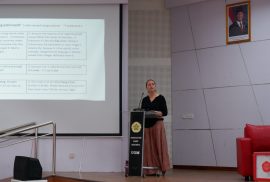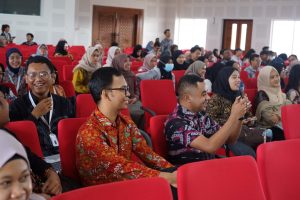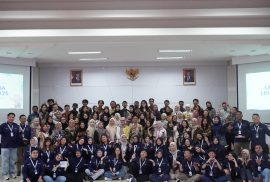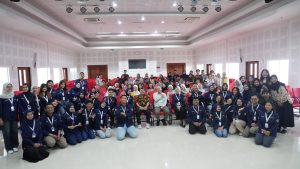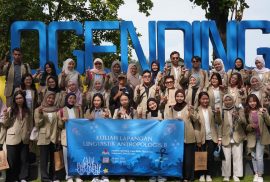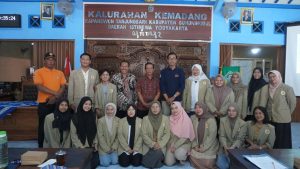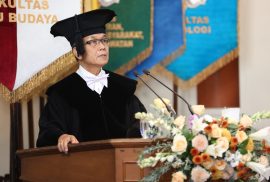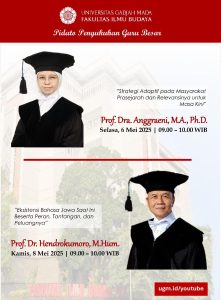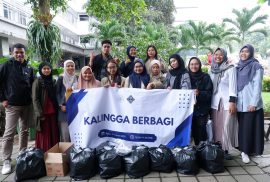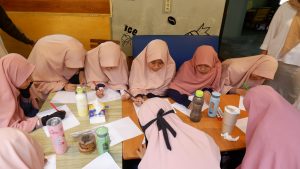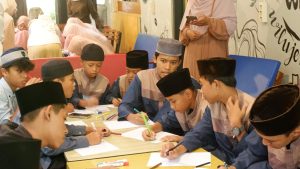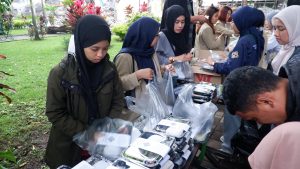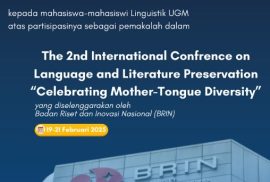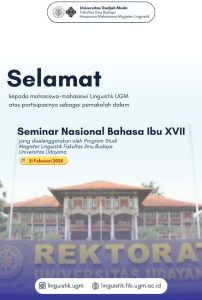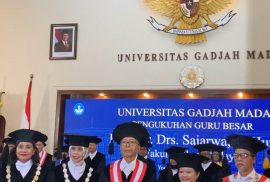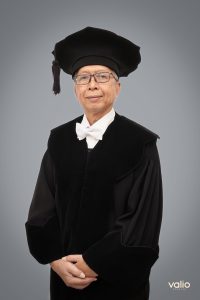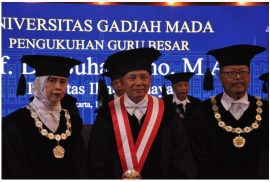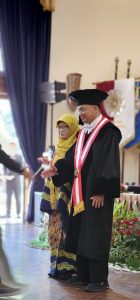The common stereotypes surrounding linguistics are the vast volume of evolving theories and specialized scholarly discourse. However, Bincang Karier Linguistik UGM 2025 has demonstrated that linguistic contributions to society extend beyond academic subjects. Hosted by Siti Radibah Imatufariq, Linguistics Master’s Program, Faculty of Cultural Sciences, Universitas Gadjah Mada, invited three alumni across different fields to share their journeys and experiences working in multilingual societies.
This event was held online on Saturday, October 11, 2025, featuring three resource persons: Dr. Ike Revita, S.S., M.Hum., a lecturer in the Faculty of Cultural Sciences, Universitas Andalas; Dr. Restu Sukesti, M.Hum., a researcher in Badan Riset dan Inovasi Nasional (BRIN); and Prayudi Wijaya, M.A., a legal translator and a court interpreter. In this discussion, these speakers shared valuable reflections on the work challenges and linguistic opportunities in the academic landscape, AI configuration, translation, creative industries, and language policies.

Drawing on over 25 years as a lecturer, Dr. Ike Revita, S.S., M.Hum. acknowledged the discrepancy between theoretical frameworks and practical reality. Therefore, she emphasizes case-based learning in the class to help students stay relevant to the world’s current issues and prepare them for professional practices. The role of linguistics is also heavily encouraged in cultural preservation. Dr. Restu Sukesti, M.Hum., who works on language conservation at BRIN, suggests how many indigenous languages in Indonesia remain unexplored and at risk of extinction. She further invites Linguistics graduates to join and preserve the cultural legacy by documenting traditional languages across Indonesia through research. As a language practitioner in localization, Prayudi Wijaya, M.A. unraveled broader prospects for Linguistics students in legal, creative, marketing, and technical industries.
Given the significant growth of AI, the three alumni present a proactive and positive stance toward the technology. They suggest that instead of wariness, Linguistics students should reflect and adapt to AI, aligning with the field’s inherently dynamic nature. Prayudi Wijaya, M.A., even demonstrated that the translation field does not perceive AI as a threat. Instead, he stated that it is the role of linguists to provide contextualization that improves a text’s legibility. The event concluded with a remark for a prospective collaboration between scholars and practitioners to establish a thorough documentation on language variation and to provide an adaptive standardization in the translation industry.




